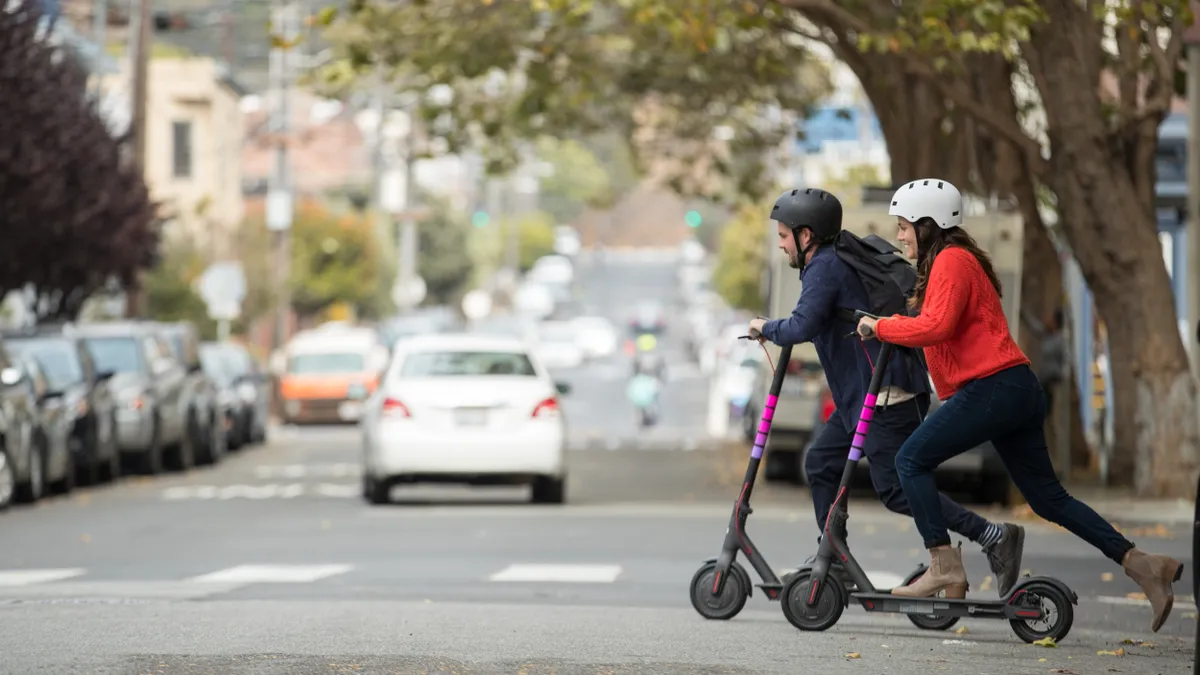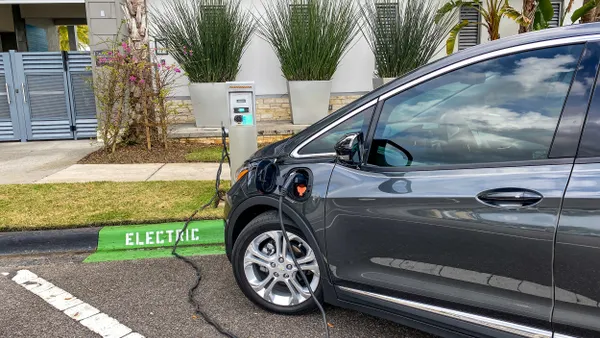Dive Brief:
- To help cities grapple with the unexpectedly rapid influx of new micromobility services, Transportation for America has released a "playbook" with policy options around licensing, maintenance and equity, among other topics. The guide was produced with officials from 23 cities participating in the group’s Smart Cities Collaborative.
- Among other policy options, the playbook explores how cities can permit and license new micromobility options, including the right to deny and appeal. Notably, the guide recommends that cities should "require all companies to indemnify the city from legal liabilities" related to loss or damage to persons or property from using dockless options on public space.
- "The rapid emergence of these new micromobility services has created new clean and convenient options for people to get around, and they certainly offer a wealth of potential benefits. But there’s still so much to learn,” Russ Brooks, Transportation for America’s Director of Smart Cities, said in a statement.
Dive Insight:
With dockless options expected to continue their ballooning expansion in 2019, especially with the backing of ride-share and automotive giants, policy problems will continue to arise. When companies like Bird and Lime dumped their vehicles on unsuspecting cities, the resulting friction resulted in penalties and reactionary policies in some cities, including temporary bans while cities tried to figure out what to do.
That tension has eased somewhat as cities have worked out orderly permitting processes that cap the number of vehicles and set geographic boundaries, but governments are often still playing catch-up with a technology that many hadn’t even imagined a year ago. With micromobility options gaining in popularity and cities recognizing how they can work alongside public transit options, it’s clear that long-term policy is necessary. That is especially true as cities seek to bring more mobility options to underserved neighborhoods, where companies may not be incentivized to put infrastructure.
The policy guide also comes after some companies have tried to set their own standards. Last year, Bird CEO Travis VanderZanden unsuccessfully tried to get competitors to sign onto a "Save our Sidewalks" pledge, while Spin released its own "partnership promise" to work alongside cities. There’s a growing recognition that cities will be the birthplace for many future mobility policies; on a conference call last fall, Jump CEO Ryan Rzepecki said that companies are "seeing very clearly that cities have an important role in regulating the public space and they're going to be active in that."











